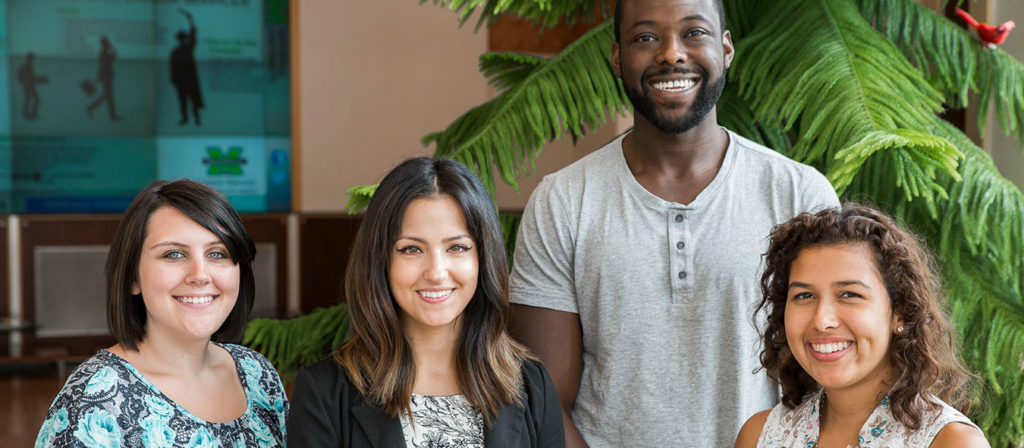When four Marshall University students started out in pursuit of a master’s degree in clinical and translational science (CTS) in 2016, they had a general idea of the expectations they would face, the experiences they would encounter and the opportunities they would have after graduation.
These weren’t just any students, however. These students were pioneers on the forefront of a new degree program aimed at equipping students with the information and training necessary to translate basic advances in science, technology and research into improved patient care.
“Twenty-first century health care is about much more than just what happens in the clinic or hospital,” said Uma Sundaram, M.D., vice dean of research and graduate education at the Marshall University Joan C. Edwards School of Medicine. “There are a number research-focused activities happening behind the scenes aimed at improving patient outcomes, developing and implementing clinical trials and monitoring data to identify health care disparities.”
After an intensive two-year program of study in which the students worked closely with clinical faculty at the school of medicine, gained hands-on clinical trial experience, and published and presented their research, the program’s first students have found success doing exactly what the program has trained them to do:
- D. Brooke Lancaster of Millstone, West Virginia, entered the Physician Assistant program at Shenandoah University in Winchester, Virginia.
- Milliejoan Mongalo of Fairfield, California, is a first-year medical student at the Universidad Autonoma de Guadalajara in Zapopan, Mexico.
- Conrad Musey of Atlanta, Georgia, is working as an information specialist for a medical software company dedicated to preclinical research and development.
- Emma Nellhaus of Charleston, West Virginia, is a first-year medical student at the Marshall University Joan C. Edwards School of Medicine.
More specifically, the CTS program focuses on giving students clinical research experience in the areas of health care important to the Appalachian region, particularly in southern West Virginia. For this first cohort of students, this included translational research in dementia, head injury protocols, medical informatics and neonatal abstinence syndrome.
The CTS program at Marshall continues to flourish. In fall 2019, two additional areas of emphasis will be added as options to the current program, including clinical informatics and health-related professional school preparation.
Originally from Sheanna M. Spence for Marshall University Communications.
